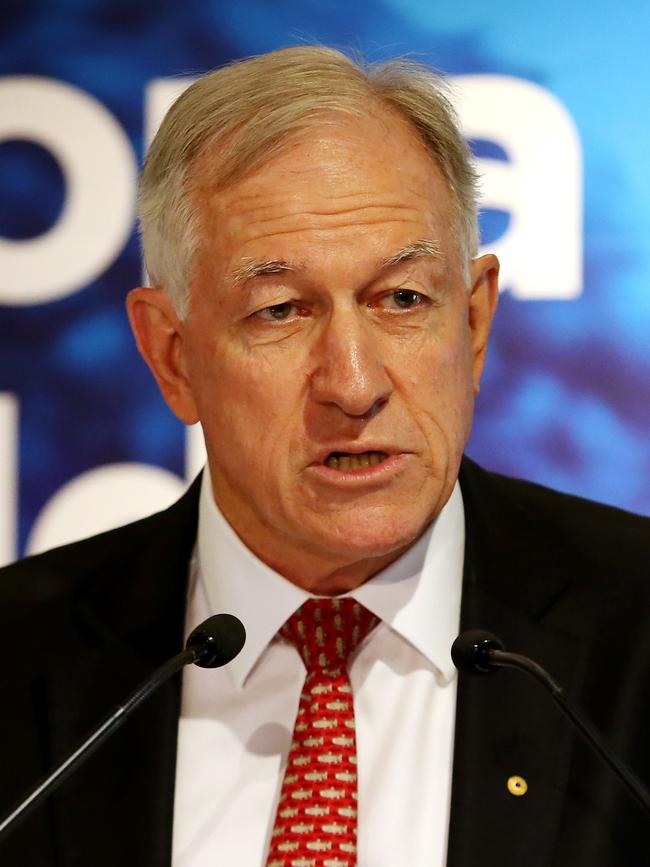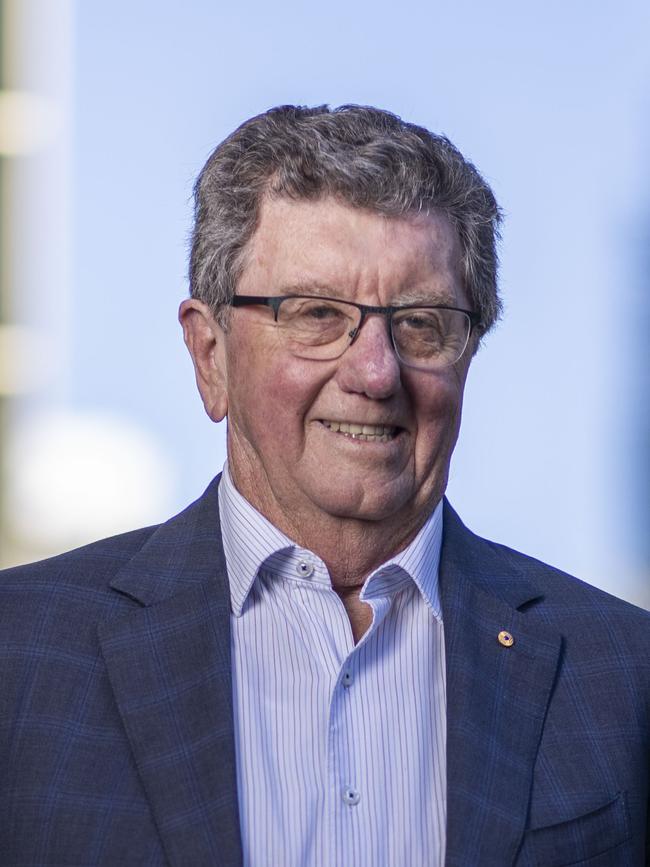
Article by Glen Norris and Greg Brown, courtesy of The Australian.

Chiefs in the infrastructure and energy sectors warn Labor’s 82 per cent green power target is unrealistic and coal-fired power stations must stay open, as the Albanese government slapped down business pleas to reconsider its renewables-only strategy and said they would be listening to “experts”.
Infrastructure NSW chairman Graham Bradley and energy rich lister Trevor St Baker both declared the Labor target unsustainable and said it must be revisited.
The mining and gas sectors have also joined calls for the Albanese government to overhaul its energy policies away from a renewables-only solution, pushing for investment signals to encourage more new gas generation and maintenance of coal-fired power generators so they can stay in the system for longer.
But Energy Minister Chris Bowen and Resources Minister Madeleine King have shot back at the growing revolt in the business world, which now spans from the food production industry to the hundreds of CEOs represented by the Australian Chamber of Commerce and Industry.
The frontbenchers said on Tuesday it was “not surprising that the coal lobby wants to sell more coal and the gas lobby wants to sell more gas”.
“The government takes its advice from the experts – the best way to keep the lights on and prices down is with renewables, backed by batteries, hydro and gas peaking,” the ministers said.
“The shift to clean, renewable energy is well underway but in the meantime, we need gas to ensure our energy system remains stable, reliable and affordable – our gas strategy manages that.”
Labor’s Future Gas Strategy states the fossil fuel has a long-term role in Australia’s energy system under all future scenarios, and that new gas will be needed. The government has approved a number of offshore gas production licences since the strategy was unveiled last year.


But Australian Energy Producers chief executive Samantha McCulloch said the government had done nothing to implement the goals of the Future Gas Strategy, released last year.
She said confidence to invest in the sector had declined over the past year despite the government voicing its support for gas, which is a key industry in the key election battleground of Western Australia.
“We’ve seen forecast shortfalls on the east coast actually being brought forward,” Ms McCulloch said. “We’ve seen that market uncertainty, we’ve seen a decline in terms of investor confidence in the market and we’ve seen major investments being announced overseas and not in Australia.”
Mr Bradley told The Australian poor planning, lack of community consultation and rising costs meant the renewables target was unrealistic.
“There is a need to push out the target date to something more reasonable,” said the former chairman of power giant EnergyAustralia.
“If projects don’t get started by next year, they are not going to be built in time.”
Mr Bradley said there was a need to bring the community on board for new projects and improve state planning co-ordination. “The planning has not been in place and there has been a failure to consult the community. We are seeing that in the litigation and public backlash (about renewable projects).”
Mr Bradley said that since the initial renewables targets were announced there had been an acceleration in costs, particularly around labour, and that the running life of coal-fired power stations would need to be extended as already seen in the decision to extend the operating period for the Eraring power station in NSW.
NSW taxpayers will fork out a maximum of $450m over two years, under the state government’s new deal to keep privately owned Eraring power station open a further two years.
Mr St Baker also said there was no way renewables could provide 82 per cent of Australia’s power generation over an entire year by 2030. “They may be able to provide it over a five-minute increment on a particular day but that does nothing for people’s power bills,” he said. “Overall renewables may account for a third of that.”
Mr Baker, whose StB Capital Partner’s portfolio includes electric vehicle charging firm Evie Networks and battery maker StBGiga, accused the Australian Energy Market Operator of not concentrating on its prime responsibility of “managing the operation of the market”.
He said it seemed to be more interested in spin rather than explaining what has to be achieved to ensure reliability and the lowest possible cost of electricity to consumers. He said that during a solar or wind “drought”, renewable output would fall further.
Coal Australia chairman Nick Jorss said maintenance and longevity of existing coal-fired power plants was crucial to supporting businesses, large and small, rather than chasing an arbitrary target on renewables that threatened jobs, prosperity, and energy security.
Minerals Council chief executive Tania Constable said the government did not know “how to integrate the vast amount of renewable energy without the system falling over”.
“They have gone too hard, too fast, and it has meant that businesses and households have struggled across Australia,” she said.
Ms McCulloch accused the government of denting investment confidence in the sector by implementing a new code of conduct that set price caps for the domestic market of $12 a gigajoule.
She was also critical of the government’s funding of the Environmental Defenders Office, a failure to reform approvals processes, its decision to walk away from reforming offshore approvals and a failure to release acreage for more than three years.
Ms McCulloch said the government needed to reverse its opposition to including gas in the Capacity Investment Scheme.
After the Australian Chamber of Commerce and Industry called for urgent talks between gas industry executives and the Albanese government to bring on more supply, Ms McCulloch said: “We absolutely need a co-ordinated plan to address the risk of shortfalls. The situation has been allowed to get so bad that we … will require industry and governments and other stakeholders working together,” she said.